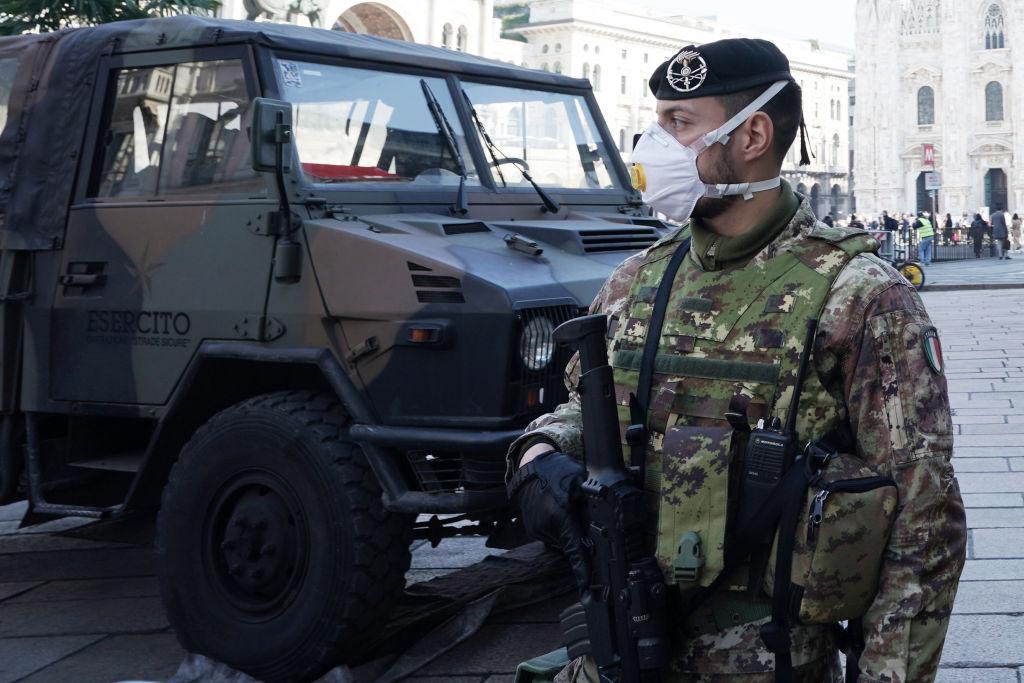
The world
One couldn’t be blamed for believing that the end of the world is nigh as the World Health Organization declares a coronavirus pandemic and coverage of the outbreak takes over just about every news outlet around the world. However, this Foreign Policy piece outlines how the risk of panic far exceeds that posed by the virus, highlighting some of the extreme ways people are reacting. And on that note, keep on top of the conspiracy theories surrounding Covid-19 with a Wikipedia page just for misinformation relating to the virus.
The Atlantic Council highlights the benefits of a global system in which everyone collaborates to stop the virus, and the dangers when we don’t. The economic impact of the virus is fairly evident when looking at stock markets around the world. The International Institute for Strategic Studies dives into this, looking at the economic vulnerabilities of China and the world amid the outbreak. And while countries have been dealing with the virus with differing degrees of strictures, how is North Korea reacting to the crisis? A major joint NATO exercise, meanwhile, has been cancelled over fears it would hasten the spread of Covid-19 in Europe.
Some good news has emerged on another disease front, with the Democratic Republic of the Congo declaring on 3 March it had discharged its last Ebola patient. As UN News explains, officials are cautiously optimistic that that will mark the end of this Ebola outbreak. However, the news comes at the same time as the DRC confirmed a Belgian citizen as its first case of coronavirus. In this piece in The Guardian, an Ebola researcher outlines why the social and economic impacts of the coronavirus crisis shouldn’t be ignored.
In light of International Women’s Day last Sunday, here are a few women, peace and security stories from the past two weeks that you may have missed.
A recent Foreign Policy piece highlights the positive growth of female participation in labour and entrepreneurship in Japan after the effects of the 2011 earthquake, tsunami and nuclear disaster, which happened nine years ago this week. It is heartening to read the growing recognition of women’s needs in these communities, especially in the area of disaster prevention and recovery. The World Economic Forum, meanwhile, released an article which looks at empowering female entrepreneurs in Africa, who in fact form the majority of entrepreneurs in sub-Saharan Africa.
The Interpreter ran an article last week which emphasised the need for a feminist Australian foreign policy that recognises gendered perspectives, areas of discrimination, inequalities and the need for inclusion. As the piece explains, such a policy would enable Australia to better meet its strategic goals of promoting gender equality in the Asia–Pacific.
An article in Policy Forum argues that women’s participation in peacekeeping roles creates an extra level of trust in military forces. However, the author emphasises the numerous barriers to women joining and staying in these roles, including cultural and societal disapproval of women in the military, discrimination, harassment and a lack of information. Chatham House highlights the benefits of involving female peacekeepers in conflict zones, from providing positive role models to younger women, to having a less threatening presence which can improve civil society rebuilding.
To end on a good note or two, Good News Network has the story of an American company that is helping to alleviate the world’s plastic problem by going back to the concept of the ‘milkman’. And global carbon emissions from energy production in 2019 fell by the largest amount since at least 1990 with a 2% drop.
Tech geek
Starting in space, in a really thought-provoking article in The Diplomat, Abhijnan Rej discusses China’s large radio telescope, called FAST [‘Five-hundred-metre Aperture Spherical Telescope’]. He considers the search for extraterrestrial intelligence and poses the question, ‘What happens if China makes first contact before the US?’ The article considers the geopolitical implications of such a scenario.
In a world first, two commercial satellites have docked in geosynchronous orbit, 36,000 kilometres out from earth. This proves the concept for on-orbit servicing, which could open up a lucrative new commercial space activity in the 2020s.
As Boeing develops its ‘loyal wingman’ airpower teaming system here in Australia, the US Air Force is planning to integrate a similar platform—the Kratos XQ-58A Valkyrie—with manned platforms like the F-35A and the F-15EX.
Bad news for the US Navy’s goal to achieve a 355-ship fleet by 2030. It’s not going to happen, now that plans to extend the service lives of the Arleigh Burke–class guided-missile destroyers have been cancelled. That means the US Navy is likely to slip further behind China’s navy, which will emerge as the largest navy in the world.
Japan is looking to build its next-generation F-3 fighter as a clean-sheet design, with US assistance, but with Tokyo covering the cost. This replaces earlier plans for a hybrid of the F-22 and F-35.
And if the coronavirus pandemic isn’t bad enough, consider the prospect of solar superstorms. Scientific American has an interesting piece on this particular black swan scenario, looking at the possibilities and how it would affect humanity.
This week in history
This week in 1945, around 100,000 Japanese citizens were killed when the US dropped 2,000 tons of incendiary bombs on Tokyo over three hours. In total, 334 B-29 Superfortresses were used, and the death toll exceeds some estimates of the number of people killed in the nuclear bombing of Hiroshima. Here is the story of one man who won’t let the world forget what happened on that day.
Multimedia
What can the 1918 Spanish flu teach us about Covid-19? This episode of the ABC’s Coronacast podcast has the answers. [10:37]
Not to be missed is this episode of the Policy Forum Podcast which focuses on the changes required to get more women into leadership positions. [35:00]
The BBC has published some incredible images this week of locust swarms devastating crops in East Africa and South Asia.